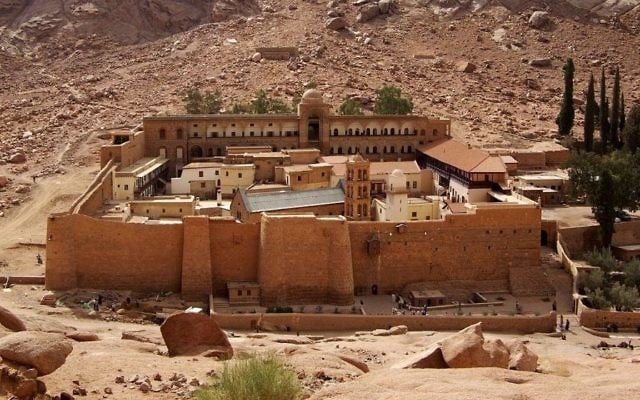Greece, Egypt agree on future of monastery at the foot of Mount Sinai, says Greek Prime Minister

Greece said it had agreed with Egypt on the future of St. Catherine’s Monastery at the foot of Egypt’s Mount Sinai, a religious site whose status had led to a diplomatic spat between the two countries.
Athens had expressed concern about plans by Egypt to develop a tourism project around the site, where, by Biblical tradition, Moses received the Ten Commandments and the Torah.
The monastery, a UNESCO World Heritage Site, is one of the world’s oldest sites of Christian worship and still houses Greek Orthodox monks.
Earlier this year, an Egyptian Court ruling ordered the monks to vacate several plots of land and worship facilities that monks have used for centuries, on the grounds that they were illegally occupied.
But after negotiations, Greece and Egypt have finalized an out-of-court deal that will be signed by the leadership of the monastery and the Egyptian authorities, according to Greek Prime Minister Kyriakos Mitsotakis and diplomats.
“It guarantees the character of the monastery in perpetuity,” Mitsotakis said during a speech in Parliament. “Any conversion of the monastery as well as of the other places of worship is prohibited.”
A senior Greek Foreign Ministry official said that the deal will be signed in the coming weeks
The St. Catherine’s Monastery, at the foot of Mount Sinai, was founded in the 6th century and is the oldest Christian monastery still in use for its original function, says UNESCO.
Its library is one of the most extensive worldwide, containing some of the world’s earliest Christian manuscripts.
In May, a Sinai Court had ruled on the land dispute, concluding that the monastery “is entitled to use” the site, but “the state owns as public property” the land on which it is built ; a ruling that caused Greece concern.
In September, Egyptian Foreign Minister Badr Abdelatty reiterated “Egypt’s firm commitment to protecting religious places of worship, including St. Catherine’s Monastery,” and “not to harm the sites affiliated with it due to its spiritual value and religious significance.”





